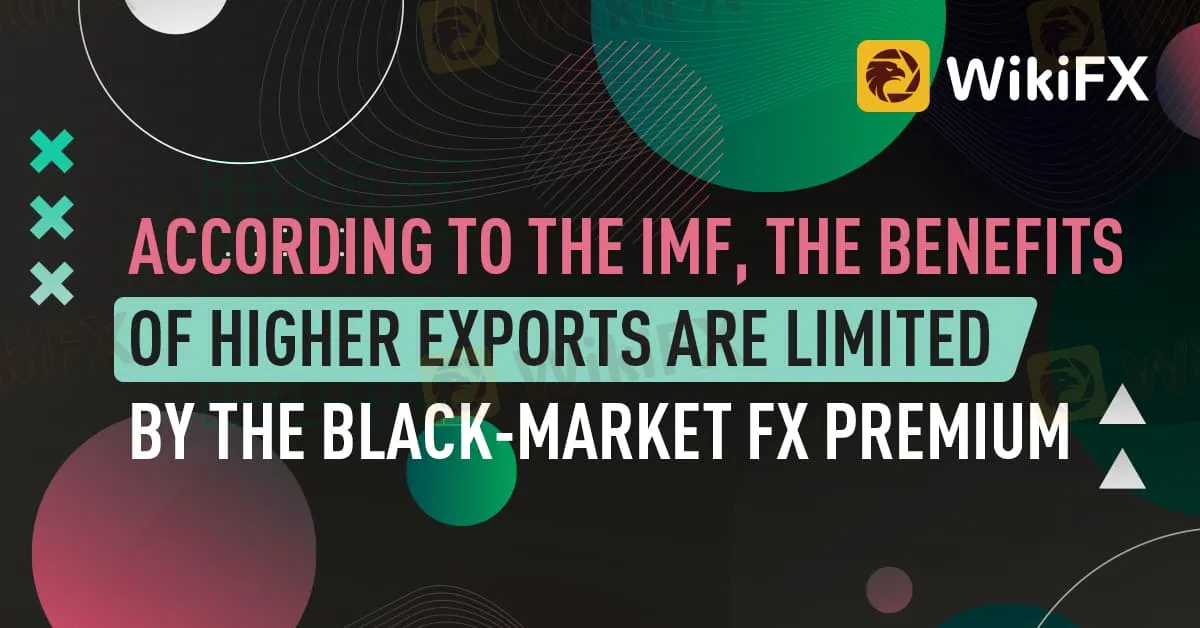简体中文
繁體中文
English
Pусский
日本語
ภาษาไทย
Tiếng Việt
Bahasa Indonesia
Español
हिन्दी
Filippiiniläinen
Français
Deutsch
Português
Türkçe
한국어
العربية
ACCORDING TO THE IMF, THE BENEFITS OF HIGHER EXPORTS ARE LIMITED BY THE BLACK-MARKET FX PREMIUM.
Abstract:According to the International Monetary Fund (IMF), improved trade balance is having a minimal impact on Foreign Exchange (FX) pressures, with parallel market exchange rate premiums remaining in the 35-40 percent level since October 2021

According to the International Monetary Fund (IMF), improved trade balance is having a minimal impact on Foreign Exchange (FX) pressures, with parallel market exchange rate premiums remaining in the 35-40 percent level since October 2021.
This was revealed at IMF staff talks with Nigerian officials from June 6-10, 2022, to examine recent economic and financial events as well as the country's economic prospects.
At the Investors and Exporters (I&E) window yesterday, the naira/US dollar exchange rate closed at N420/$1. According to BDC operators, the illicit market retains a significant premium, closing at N607/$1.
According to the IMF, real GDP growth is spreading to all sectors except oil, although inflation remains high. The foreign lenders also stated that the economic outlook is tough, with rising food prices generating worries about food security.
WHAT THE IMF HAS TO SAY
“In terms of the external sector, the current account deficit shrank dramatically in 2021, thanks to lower imports and a stronger net oil balance.” However, the improved trade balance, which has persisted in 2022, is having a minimal influence on Foreign Exchange (FX) constraints, with parallel market exchange rate premiums remaining in the 35-40% level since October 2021. Despite low oil prices, total foreign exchange reserves declined to $38.6 billion at the end of May 2022, from $41.5 billion in September 2021, thanks to SDR distribution and Eurobond issuance. According to the IMF
International lenders also commented on Nigeria's inflationary concerns and the response of the Central Bank of Nigeria. “Inflation has reached 17.7 percent (y/y) in May, led by a further increase in food costs, aggravated by the crisis in Ukraine, and heightening food security worries since more than 40 percent of the population lives below the poverty line,” according to the IMF. The Central Bank of Nigeria recently increased its monetary policy rate by 150 basis points to 13 percent in order to manage inflationary pressures.
According to the IMF, the economic recovery is strengthening on the basis of services and agriculture, with GDP growth reaching 3.6 percent (y/y) in Q1 2022.
WHAT YOU SHOULD BE AWARE OF
· Nigeria's international trade increased to N13 trillion in the first quarter of 2022, up 11.1 percent from N11.7 trillion in the previous quarter and 65.4 percent from N7.86 trillion in Q1 2021. This is according to the National Bureau of Statistics' recently issued international trade report for the first quarter of 2022. (NBS).
· Total imports in Q1 2022 was N5.9 trillion, a 0.67 percent decrease from Q4 2021 (N5.94 trillion), but a 21.04 percent increase over the same time in 2021. (N4.88 trillion).
· Nigeria's export income in the first quarter of 2022 was N7.1 trillion, an increase of 23.1 percent and 137.9 percent over the first and fourth quarters of 2021, respectively.
· Despite decreased crude oil output, the significant increase in crude oil prices has allowed Nigeria to enhance its crude export profits. Crude oil revenues, for example, climbed 175 percent year on year to N5.62 trillion in Q1 2021, up from N2.04 trillion in Q1 2021.
· Crude oil export revenues accounted for 79.16 percent of total export profits in the period under review. As a consequence, Nigeria's trade balance improved in Q1 2022, with a foreign trade surplus of N1.12 trillion. Nigeria's trade surplus has reached its highest point since the third quarter of 2019.

Disclaimer:
The views in this article only represent the author's personal views, and do not constitute investment advice on this platform. This platform does not guarantee the accuracy, completeness and timeliness of the information in the article, and will not be liable for any loss caused by the use of or reliance on the information in the article.
Read more

Shocking! Trump to Double Tariffs on Canada!
Trump announced a tariff hike on Canadian steel and aluminum to 50%, shaking the markets. The Canadian stock market took a hit, the Canadian dollar plummeted, and U.S. steel and aluminum stocks surged, triggering strong reactions from all sides.

Good News for Nigeria's Stock Market: Big Gains for Investors!
Nigeria’s stock market kicked off the trading week with strong momentum, boosting investor assets by ₦52 billion. Market confidence is high, creating a rare investment boom!

Gold Trading Insights: Prepare for Moves Above $2,900 Post-CPI
Gain gold trading insights as US CPI nears. Will $2,900 hold or break? Prepare with tariff and geopolitical factors in focus.

WikiFX App Version 3.6.4 Release Announcement
We are pleased to announce that WikiFX App Version 3.6.4 has officially been released. This update includes significant functional optimizations. Below are the key updates.
WikiFX Broker
Latest News
Plunging Oil Prices Spark Market Fears
Celebrate Ramadan 2025 with WelTrade & YAMarkets
WikiFX App Version 3.6.4 Release Announcement
Indian Watchdog Approves Coinbase Registration in India
SILEGX: Is This a New Scammer on the Block?
How Can Fintech Help You Make Money?
Good News for Nigeria's Stock Market: Big Gains for Investors!
IIFL Capital Faces SEBI's Regulatory Warning
Why Is OKX Crypto Exchange Under EU Probe After Bybit $1.5B Heist?
Gold Trading Insights: Prepare for Moves Above $2,900 Post-CPI
Currency Calculator






